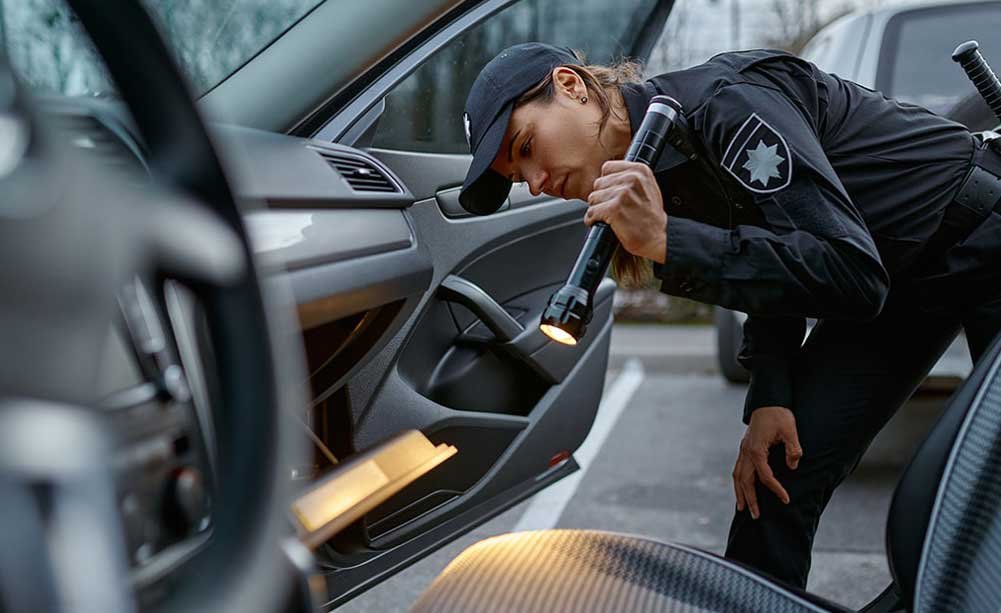Can The Police Search Your Car Without A Warrant?
Navigating the Thin Line between Car Searches and the Fourth Amendment.
The right to privacy and protection from unwarranted governmental intrusion is fundamental in many democracies.
In the United States, the Fourth Amendment of the Constitution guards citizens from unreasonable searches and seizures.
So, it naturally begs the question: can the police search your vehicle without a warrant? The general answer is no, but there are exceptions. Let’s delve deeper.
Related Questions
-
If the police claim to smell marijuana or any illegal substance, they can use that as probable cause to search your vehicle without a warrant.
-
Yes, once your car is impounded, the police can conduct an administrative search to look for additional evidence related to a crime.
-
The automobile exception allows police to search a vehicle without a warrant if they have probable cause to believe it contains evidence of a crime. This is due to the reduced expectation of privacy in a vehicle and its mobility.
Short Answer:
Q: Can the police search your car without a warrant?
A: While your vehicle is generally protected under the Fourth Amendment from unwarranted searches, there are exceptions.
Police can search without a warrant if they see/smell evidence, if your car is impounded, under the automobile exception (due to reduced privacy expectations in cars), and for officer safety if you're arrested.
Understanding the Fourth Amendment
The Fourth Amendment emphasizes the importance of a warrant when it comes to searches and seizures by law enforcement. However, vehicles present unique challenges, leading to the creation of specific exceptions that allow police to perform a search without a warrant.
Plain View
This is pretty straightforward. If law enforcement officers see or smell something that provides them with probable cause to believe you’ve committed a crime, they can carry out a search without a warrant.
This might include the smell of illegal substances emanating from the vehicle or visible evidence of wrongdoing like an open container of alcohol or drug paraphernalia.
Administrative Search
Imagine being arrested due to illegal items found in your vehicle. Following the arrest, your car is towed to an impound lot. At this point, the police have the right to search your vehicle for any additional evidence related to criminal activities.
Automobile Exception
The distinction between homes and vehicles is essential when considering privacy expectations. Courts generally recognize that individuals have a lower expectation of privacy in their vehicles compared to their homes.
The reasons for this distinction include:
The inherent mobility of vehicles, which can lead to the potential removal or disposal of evidence.
The often-exposed nature of vehicles as they are driven or parked in public places.
This automobile exception allows the police to search a vehicle if they have probable cause to believe it contains evidence of a crime. However, the search is not limitless.
Police can only search areas where they genuinely believe illegal items might be located. This could include the trunk or any containers inside the car.
Search Incident to Arrest
Safety is paramount. If you are arrested, the police are allowed to search the immediate vicinity of the arrest to protect themselves.
This means checking for any weapons or potential threats within an area commonly referred to as the officer’s “wingspan.” It's a safety measure, ensuring the officer isn’t in immediate danger.
In Conclusion
While the Fourth Amendment provides protections against unwarranted searches, exceptions exist, especially concerning vehicles.
Being informed about these exceptions helps in understanding one’s rights and the boundaries within which law enforcement operates.
If you ever find yourself in a situation where your vehicle is being searched, it's essential to remain calm, comply with the officers, and consult legal counsel if you believe your rights have been infringed.











Inside the Investigation: A Deeper Dive into Police Detective Benefits